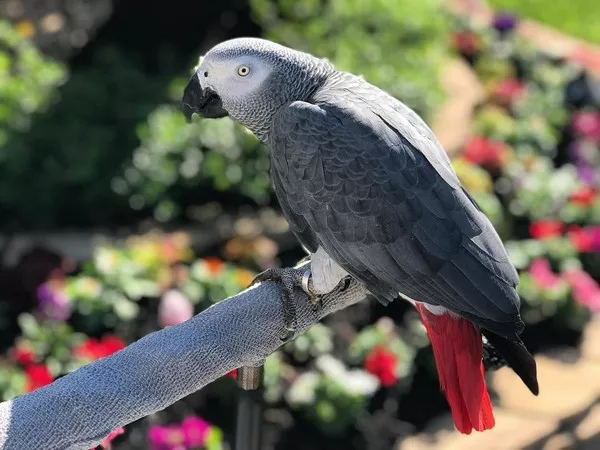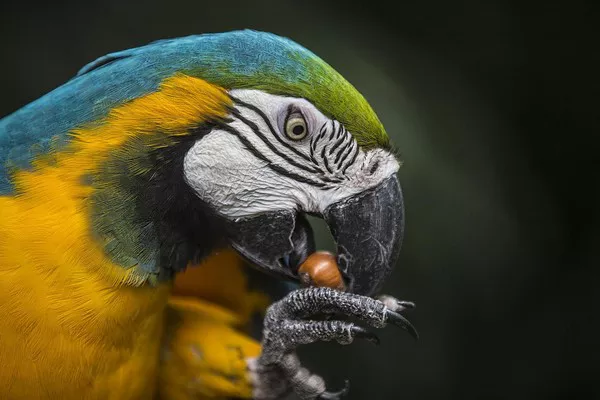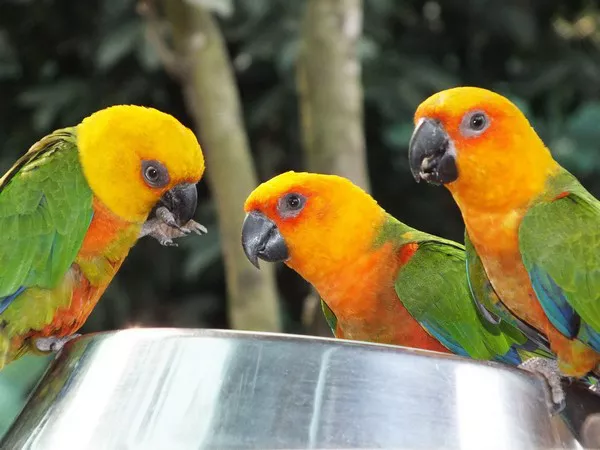The Sun Conure, known for its vibrant plumage and lively personality, is a popular choice among bird enthusiasts. This article explores the factors influencing the cost of a Sun Conure at Petco, as well as providing an overview of the species’ characteristics, living habits, and care requirements. Understanding the price and care needs of this captivating parrot can help potential owners make informed decisions.
Sun Conure Overview
Species Characteristics
The Sun Conure (Aratinga solstitialis) is a small parrot native to northeastern South America. Known for its striking appearance, the Sun Conure features a dazzling array of colors. The plumage is predominantly golden-yellow with vibrant orange and red hues on the wings and tail, and a splash of green on the back and wings. Their bright coloration is one of the primary reasons why they are so highly sought after.
In addition to their stunning looks, Sun Conures are known for their playful and affectionate nature. They are medium-sized parrots, with an average length of around 12 to 14 inches from beak to tail. Their strong beaks, agile feet, and lively demeanor make them active and engaging pets.
Behavior and Personality
Sun Conures are renowned for their energetic and playful personalities. They are highly social birds that thrive on interaction with their human companions. Known for their loud and expressive vocalizations, Sun Conures are often quite vocal, and their calls can be quite loud. This vocal nature is something prospective owners should consider, as it may not be suitable for all living environments.
These parrots are also highly intelligent and enjoy activities that stimulate their minds. They are capable of learning tricks and can become quite adept at problem-solving. Their playful behavior often includes climbing, chewing, and exploring their surroundings, making them an active and engaging pet.
Cost of a Sun Conure at Petco
Factors Influencing the Price
The cost of a Sun Conure at Petco can vary based on several factors. Key elements that influence the price include:
Age and Size: Younger Sun Conures, particularly those that are hand-fed and socialized, often command higher prices. Size can also affect the cost, with larger or more mature birds sometimes being priced higher.
Health and Genetics: Birds that come from reputable breeders and have been screened for genetic disorders or health issues generally cost more. Healthier birds with desirable genetic traits may also be priced higher.
Feather Condition and Color: The quality of the bird’s plumage can affect its price. Sun Conures with more vibrant or distinctive color patterns may be priced higher than those with less striking coloration.
Petco’s Pricing Policies: Petco’s pricing can also be influenced by regional factors, promotions, and the specific policies of individual store locations. Prices may vary from one Petco store to another based on local demand and availability.
Average Cost Range
As of recent data, the cost of a Sun Conure at Petco typically ranges from $600 to $1,000. This price range can fluctuate based on the factors mentioned above. It is essential to check with your local Petco store for the most accurate and up-to-date pricing information.
Living Habits and Care Requirements
Housing and Environment
Sun Conures require a spacious and stimulating environment to thrive. A suitable cage should be large enough to allow for plenty of movement and activity. The minimum recommended cage size for a Sun Conure is 24 x 24 x 36 inches, but larger cages are preferable. The cage should include perches of varying sizes and materials to promote foot health and provide opportunities for climbing and play.
Providing a stimulating environment is crucial for the well-being of a Sun Conure. This includes offering a variety of toys, such as chew toys, foraging toys, and swings, to keep the bird mentally and physically engaged. Regular out-of-cage time is also important, as it allows the bird to exercise and interact with its human companions.
Diet and Nutrition
A balanced diet is essential for the health of a Sun Conure. In the wild, Sun Conures primarily eat fruits, seeds, nuts, and berries. In captivity, their diet should be supplemented with high-quality pelleted food, fresh fruits, and vegetables. It is important to provide a varied diet to ensure the bird receives all necessary nutrients.
Avoid feeding Sun Conures foods that are high in fat, sugar, or salt, as these can lead to health issues. Additionally, certain foods, such as avocado, chocolate, and caffeine, are toxic to birds and should be strictly avoided. Fresh water should be available at all times, and the water container should be cleaned daily to prevent bacterial growth.
See Also: Why Is My Sun Conure Shaking?
Grooming and Health Care
Sun Conures require regular grooming to maintain their health and appearance. This includes nail trimming, beak and feather care, and occasional baths. Regular grooming helps prevent overgrowth of nails and beak, which can cause discomfort or health issues.
Routine veterinary check-ups are important for monitoring the bird’s health. Regular visits to an avian veterinarian can help detect and address potential health problems early. Common health concerns for Sun Conures include feather plucking, respiratory infections, and gastrointestinal issues.
Socialization and Interaction
Socialization is crucial for a Sun Conure’s well-being. These birds are highly social and thrive on interaction with their human companions. Regular handling, playtime, and positive reinforcement training can help build a strong bond between the bird and its owner.
Sun Conures are known for their vocal nature and may require training to manage excessive noise levels. Providing plenty of mental stimulation and engaging in interactive play can help reduce unwanted vocalizations and keep the bird happy.
Considerations Before Purchasing
Lifestyle Compatibility
Before purchasing a Sun Conure, it is important to consider whether this breed is a good fit for your lifestyle. The Sun Conure’s vocal nature and high energy levels may not be suitable for all living environments. Additionally, their need for social interaction and mental stimulation requires a commitment of time and effort from their owners.
Assessing your ability to meet the care requirements of a Sun Conure, including providing a suitable cage, diet, and regular veterinary care, is essential for ensuring the bird’s well-being.
Adoption vs. Purchase
While Petco offers Sun Conures for purchase, another option is adoption through bird rescue organizations or avian shelters. Adopting a Sun Conure can be a rewarding experience and provides a home to a bird in need. Adoption may also be more cost-effective, though it is important to ensure that the bird’s health and care needs are met.
Conclusion
The Sun Conure is a vibrant and lively parrot known for its stunning plumage and playful personality. The cost of a Sun Conure at Petco typically ranges from $600 to $1,000, influenced by factors such as age, health, and coloration.
Owning a Sun Conure involves a commitment to providing a suitable living environment, a balanced diet, regular grooming, and social interaction. Understanding these needs and considering the costs and responsibilities associated with this bird can help ensure a positive and fulfilling experience for both the Sun Conure and its owner.
Whether you choose to purchase a Sun Conure from Petco or explore adoption options, this breed offers a rewarding companionship for those willing to invest time and care into meeting its needs.
Related Topics:
























